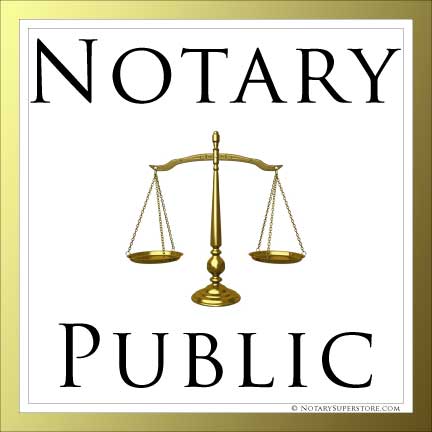Debunking Notarial Work: Streamlining the Role and Value of Notaries
In the elaborate web of lawful paperwork and confirmation, notaries stand as pillars of assurance and credibility. Their duty, usually shrouded in secret for numerous, brings considerable weight in guaranteeing the credibility and stability of essential records. As guardians of legality and reality, notaries play a crucial part in our society, yet their job is not always fully understood. By deciphering the intricacies shedding and surrounding notarial practices light on the importance of their acts, a clearer understanding arises of the important function notaries play in supporting the fabric of legal and legal contracts.
The History of Notarial Work
The history of notarial work dates back to old people, where scribes played a vital function in tape-recording important details and validating records. This led to the advancement of notaries, individuals assigned by the state to act as neutral witnesses in lawful matters.
During the Center Ages, notaries got importance in Europe, with their functions increasing to consist of drafting lawful records, licensing signatures, and protecting records. The increase of international profession even more stressed the importance of notarial operate in verifying agreements and agreements throughout borders.
In the contemporary era, notaries remain to play a vital function in lawful and organization transactions by confirming identifications, verifying the authenticity of papers, and preventing fraud. Their function in accrediting the credibility of arrangements includes a layer of safety and trust fund to the ever-evolving landscape of commerce and legislation.

Tasks and Responsibilities of Notaries
The historic development of notarial job from ancient civilizations to the modern period has actually shaped the unique duties and responsibilities that notaries maintain in lawful and business deals today. Notaries play a vital function in validating the credibility of documents and the identity of signatures. One of their primary responsibilities is to witness the finalizing of essential files, such as contracts, acts, and wills, to make certain that all celebrations are entering into agreements intentionally and willingly. Notaries likewise confirm that signatories are of audio mind and not under discomfort or coercion.
Moreover, notaries are tasked with administering vows and affirmations, which are crucial in lawful procedures and the execution of sworn statements. They certify copies of initial records, providing guarantee to institutions that the copies are real replicas of the originals. Notaries have to preserve accurate records of all purchases they supervise to make sure transparency and liability. On the whole, the responsibilities and duties of notaries are necessary in securing the integrity and legitimacy of various records and transactions.
Notarial Certificates and Signatures
Exemplifying precise interest to detail, notarial certificates and signatures act as essential components in verifying the authenticity of legal documents. Notarial certificates commonly consist of important details such as the day of notarization, the names of the signatories, a more info here description of the document, and the notary's official seal. These certifications offer a clear document of the notarial act, making sure that the document can be easily determined and mapped back to the notary that supervised the process.
Signatures play a pivotal function in notarial work, as they represent the contract and consent of the parties included. Notaries carefully witness the finalizing of files to confirm the identity of the signatories and verify that they are signing of their own free will. By fastening their official seal and trademark to the document, notaries license that the necessary treatments have actually been adhered to which the paper is legitimate and enforceable.
Basically, notarial certificates and trademarks are the characteristic of credibility in legal deals, providing assurance to all celebrations involved that the records are reputable and binding.
Significance of Notarial Acts

Notarization Process Described
The notarization process typically starts with the individual providing the paper to a notary public. Once the identity is confirmed, the notary ensures that the specific authorizing the paper does so willingly and without any kind of coercion.

Final Thought

Notarial certifications generally consist of critical details such as the day of registration, the names of the signatories, a summary of the document, and the notary's main seal. These certifications supply a clear document of the notarial act, ensuring that the record can be conveniently recognized and mapped back to the notary that looked after the procedure.
By attaching their main seal and signature to the record, notaries accredit that the needed procedures have actually been complied with and that the paper is enforceable and valid.
By confirming the identity of the signatories, verifying their determination to enter into the arrangement, and certifying the date and place of the signing, notaries play an important duty in upholding the validity of legal records.After the document is signed, the notary will certainly fasten their official seal or stamp onto the file.